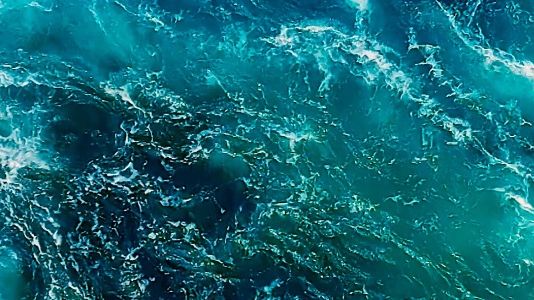22 June 2017 press release
Business and management of marine resources
To utilize the ocean's marine resources efficiently and sustainably, it is crucial to obtain accurate, up-to-date, information about the continuously changing ocean environment. Traditional approaches of collecting environmental data from research vessels are costly and inefficient, requiring significant investments in labor and equipment. To meet future challenges and opportunities, routine and continuous access to information on the ocean's biological and oceanographic conditions is crucial for all ocean industries and for managers of ocean and coastal resources.
Businesses and environmental managers at the forefront are seeking access to high quality ocean data in easy to access, and increasingly from more remote areas of the ocean. Therefore, scientists are now testing unmanned ocean vehicles, equipped with a range of sensors, as a more cost-effective and efficient approach to collect large sets of data over vast areas of the ocean. The unmanned ocean vehicles collect data from the ocean surface and deeper in the water-column. They are easily re-programmed to adapt to changing data-collection needs and to operate in new ocean areas.
GLIDER – Unmanned Ocean Exploration
The project "GLIDER - Unmanned Ocean Exploration" is financed by the Research Council of Norway DEMO2000 program and ConocoPhillips Norway and runs for 3 years. The research and consultancy company Akvaplan-niva (Tromsø, Norway) is leading the project. In 2017, the project consortium will perform a series of technology testing activities. Three different unmanned vehicles will be deployed 1 August outside Sandnessjøen, Norway, and retrieved 7 September at Bodø, Norway. In 2018, the unmanned vehicles will be continuously deployed from March through October.
The vehicles are a diving Seaglider™(produced by Kongsberg Maritime AS), a Sailbuoy (produced by Offshore Sensing AS) and a Wave Glider (operated by Maritime Robotics AS). These are energy efficient platforms that also take advantage of energy from waves, wind and solar power. They are equipped with a GPS and programmed and navigated from land. Each vehicle carries a variety of sensors for the collection of chemical, physical and biological ocean and atmospheric data. These sensors provide continuous measurements of weather, waves, currents, temperature, salinity, O₂, CO₂, pH, ocean acidification, marine algae, animal plankton, fish fry and marine mammals. The Glider project will collect a vast amount of met-ocean and environmental data in time and space at greater flexibility and lower cost compared to traditional sampling.
Large data sets and analysis tailored for the market and user-groups
Scientists and consultants in cooperation with users will develop a system for distribution and management of the collected data. This will ensure that data are available for different marine andmaritime industrial user-groups (such as offshore oil and gas, aquaculture, fisheries, offshore mining and tourism), and for government authorities and the research sector. The goal is to offer baseline information for decision making to support profitable ocean businesses and governmental management. The collected data will contribute to better understanding of the structure and function of the marine ecosystem, improving existing ecological, oceanographic and meteorological models.
Partners
The partners in this project will use this experience to realize a professional business solution to manage data-collection and to develop data-analysis routines that can be offered to different markets for field campaigns to acquire both, short- and long-term, time-series of data.
In addition to Akvaplan-niva AS, the research and innovation partners are Met.no, the Norwegian Institute of Water Research, UiT- The Arctic University of Norway, Nord University, Kongsberg Maritime AS, SIMRAD, Maritime Robotics AS, Offshore Sensing AS, Christian Michelsen Research AS and Aanderaa Data Instruments AS.
